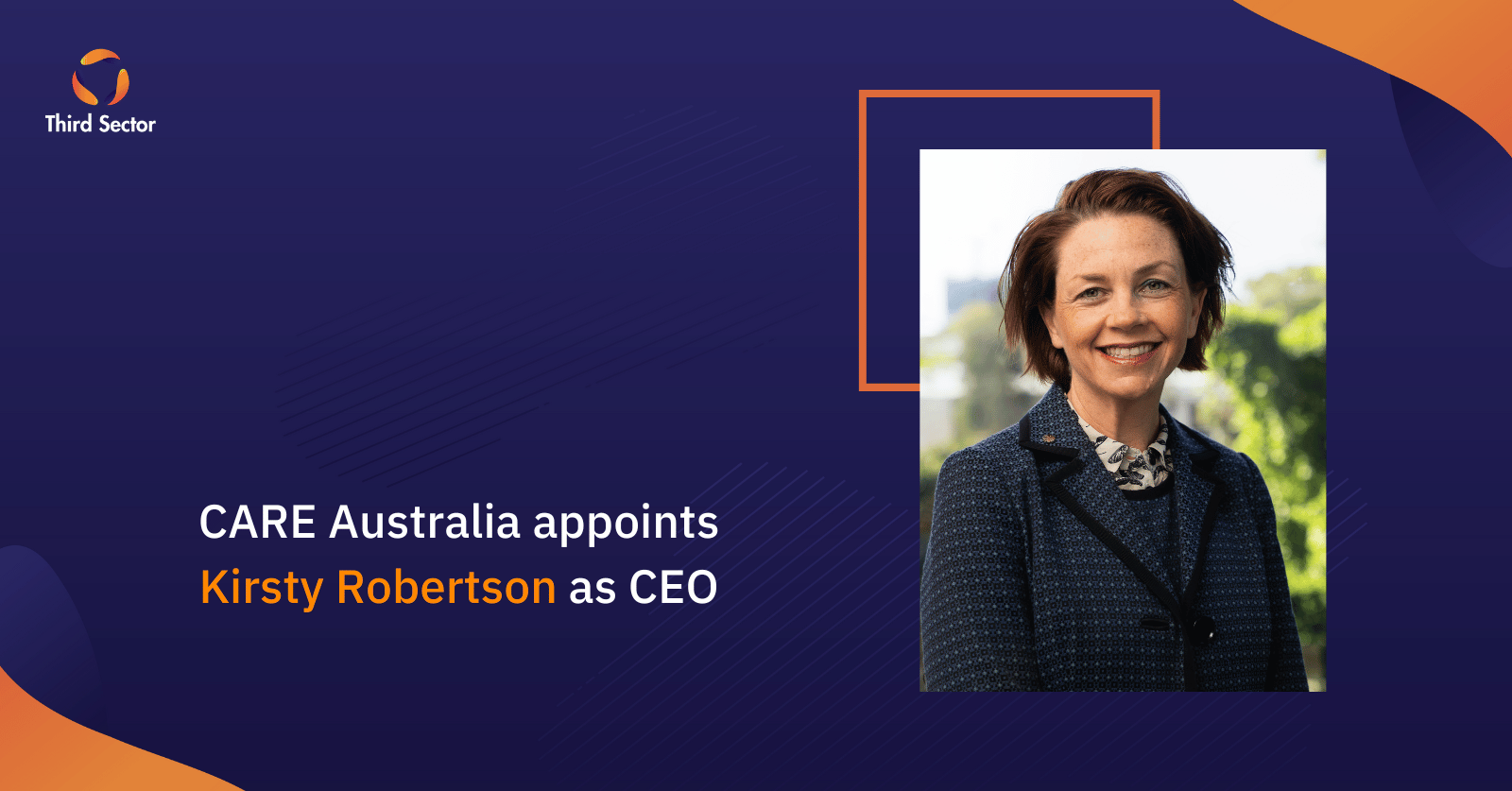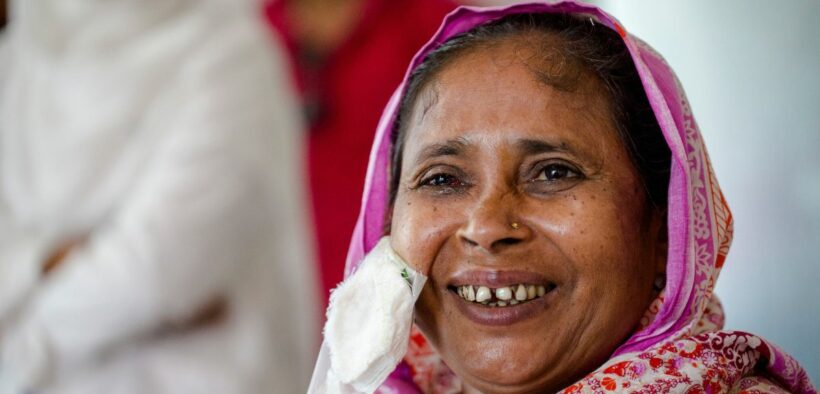
- Business
- Finance
- Funding
- Fundraising
- Leadership
- Governance
- Grants
- Mergers
- Investment
- Partnerships
- Policy
- Regulations





Save the Children welcomes Australia’s move to rejoin the Green Climate Fund
Menchie Khairuddin
Budget burdens survivors with the cost of domestic violence for another year
Menchie Khairuddin
Shoalhaven business helps lower homeowner energy costs
Menchie Khairuddin
What Can Charities Do if They Have Gone into Debt?
Third Sector
$1 million in funding to help restore local environments
Menchie Khairuddin
New report on funding NFPs for drought resilience and recovery
Menchie Khairuddin
$3.7M in funding for infection control research
Menchie Khairuddin
$520K in grants for community organisations
Menchie Khairuddin
New funding opportunities from Bupa
Menchie Khairuddin
First Australians Capital closes successful Catalytic Impact Funds
Menchie Khairuddin
Rural communities continue to fall through funding gap
Menchie Khairuddin
FRRR and Charter Hall expand partnership
Menchie Khairuddin
Over $10,000 to combat youth homelessness
Menchie Khairuddin
$850K raised for young Aussies impacted by childhood cancer
Menchie Khairuddin

Fundraising walk to help 70K homeless pets
Third Sector
Campaign to raise $600K+ for local charities
Menchie Khairuddin
$110 Million Raised for Charities Australia-wide
Third Sector
Property heavyweights raise more than $51K for homeless youths
Menchie Khairuddin
Improving Collaboration Between Fundraising Teams and Volunteer Managers
Menchie Khairuddin
Local leaders share stories of drought recovery
Menchie Khairuddin
CARE Australia appoints Morgana Ryan as permanent CEO
Menchie Khairuddin


Kids First Australia welcomes new CEO
Third Sector
CARE Australia appoints Kirsty Robertson as CEO
Menchie Khairuddin
PanKind announces new Heads of Programs and Marketing
Menchie Khairuddin

ITECA unveils student-centric blueprint for Parliament
Menchie Khairuddin



Young people to drive residential care reform in Queensland
Menchie Khairuddin

Voluntary disclosure policies lead global sustainability agenda
Menchie Khairuddin

More than $157,766 in grants for youth-focussed projects
Menchie Khairuddin

$25K in grants to help Rochester plan for building back better
Menchie Khairuddin
Up to $490K in grants for social and affordable housing
Menchie Khairuddin

Over $6M in grants to improve ageing in Australia
Third Sector
New report on funding NFPs for drought resilience and recovery
Menchie Khairuddin
$300K in grants to revive nature and support volunteers
Menchie Khairuddin
Groundbreaking merger between SecondBite and FareShare
Menchie Khairuddin
Kids First Australia expands to support at-risk children and youth
Menchie Khairuddin
HESTA and Mercy Super announces plan to merge
Lourdes Antenor




Advocates urge grassroots investment for future Paralympic success
Menchie Khairuddin

Karitane receives $13M for Fairfield children and families
Menchie Khairuddin
WHEN welcomes four new Board Members
Menchie Khairuddin
$2M committed to First Australians Capital Catalytic Fund
Menchie Khairuddin




Partnership to build healthier communities through education
Menchie Khairuddin
$50K in grants to improve rural communities
Menchie Khairuddin


Calls for more housing relief
Menchie Khairuddin
FRRR and Charter Hall expand partnership
Menchie Khairuddin
$5M partnership to strengthen capacity and resilience
Menchie Khairuddin



ASU calls for immediate action following the murders of 4 women this week
Menchie Khairuddin
The Paul Ramsay Foundation on the referendum result
Menchie Khairuddin
Budget burdens survivors with the cost of domestic violence for another year
Menchie Khairuddin
Children displaced by climate shocks doubled to a record high
Menchie Khairuddin

New reform a welcome step to free charities from red tape
Menchie Khairuddin
Fundraising harmonisation a win for charities
Menchie Khairuddin
ACNC calls on Charities to submit their Annual Information Statement
Menchie Khairuddin




- Social Affairs
- Child Protection
- Education
- Environment
- Gender and LGBTIQ+
- Health
- Housing and Homelessness
- Humanitarian Crisis
- Mental Health
- Youth
- Child Protection
- Education
- Environment
- Gender and LGBTIQ+
- Health
- Housing and Homelessness
- Humanitarian Crisis
- Mental Health
- Youth



ITECA unveils student-centric blueprint for Parliament
Menchie Khairuddin
NAPCAN launches online modules to empower safe conversations
Menchie Khairuddin
Environmental NFP welcomes new member
Menchie Khairuddin
New report on funding NFPs for drought resilience and recovery
Menchie Khairuddin

$300K in grants to revive nature and support volunteers
Menchie Khairuddin

Making end-of-life care inclusive for LGBTIQ+ people
Menchie Khairuddin

Opinion: How To Take Action For A Gender Equal Future
Kirsty Robertson
Over $10,000 to combat youth homelessness
Menchie Khairuddin

Mission Australia names Governor-General Sam Mostyn AC as Patron
Menchie Khairuddin
Hon Clare O’Neil MP supports more action during homelessness week
Menchie Khairuddin
More than $280K in grants for mental health projects
Menchie Khairuddin
$500K in grants are available for initiatives to support carers
Menchie Khairuddin
Vital Survey to Improve Wellbeing
Menchie Khairuddin
Doubled donations to meet growing demand for PNDA support
Arabella Gibson
More than $157,766 in grants for youth-focussed projects
Menchie Khairuddin
Property heavyweights raise more than $51K for homeless youths
Menchie Khairuddin
OzHarvest serve up hope to Australia’s at-risk youth
Menchie Khairuddin
NAPCAN launches online modules to empower safe conversations
Menchie Khairuddin - Appointments
- First Nations
- Latest Stories


Doubled donations to meet growing demand for PNDA support
Arabella Gibson
Opinion: The importance of improving inclusivity online
Josh Crawford
- Events
- Authors
- Partners
- Business
- Finance
- Funding
- Fundraising
- Leadership
- Governance
- Grants
- Mergers
- Investment
- Partnerships
- Policy
- Regulations





Save the Children welcomes Australia’s move to rejoin the Green Climate Fund
Menchie Khairuddin
Budget burdens survivors with the cost of domestic violence for another year
Menchie Khairuddin
Shoalhaven business helps lower homeowner energy costs
Menchie Khairuddin
What Can Charities Do if They Have Gone into Debt?
Third Sector
$1 million in funding to help restore local environments
Menchie Khairuddin
New report on funding NFPs for drought resilience and recovery
Menchie Khairuddin
$3.7M in funding for infection control research
Menchie Khairuddin
$520K in grants for community organisations
Menchie Khairuddin
New funding opportunities from Bupa
Menchie Khairuddin
First Australians Capital closes successful Catalytic Impact Funds
Menchie Khairuddin
Rural communities continue to fall through funding gap
Menchie Khairuddin
FRRR and Charter Hall expand partnership
Menchie Khairuddin
Over $10,000 to combat youth homelessness
Menchie Khairuddin
$850K raised for young Aussies impacted by childhood cancer
Menchie Khairuddin

Fundraising walk to help 70K homeless pets
Third Sector
Campaign to raise $600K+ for local charities
Menchie Khairuddin
$110 Million Raised for Charities Australia-wide
Third Sector
Property heavyweights raise more than $51K for homeless youths
Menchie Khairuddin
Improving Collaboration Between Fundraising Teams and Volunteer Managers
Menchie Khairuddin
Local leaders share stories of drought recovery
Menchie Khairuddin
CARE Australia appoints Morgana Ryan as permanent CEO
Menchie Khairuddin


Kids First Australia welcomes new CEO
Third Sector
CARE Australia appoints Kirsty Robertson as CEO
Menchie Khairuddin
PanKind announces new Heads of Programs and Marketing
Menchie Khairuddin

ITECA unveils student-centric blueprint for Parliament
Menchie Khairuddin



Young people to drive residential care reform in Queensland
Menchie Khairuddin

Voluntary disclosure policies lead global sustainability agenda
Menchie Khairuddin

More than $157,766 in grants for youth-focussed projects
Menchie Khairuddin

$25K in grants to help Rochester plan for building back better
Menchie Khairuddin
Up to $490K in grants for social and affordable housing
Menchie Khairuddin

Over $6M in grants to improve ageing in Australia
Third Sector
New report on funding NFPs for drought resilience and recovery
Menchie Khairuddin
$300K in grants to revive nature and support volunteers
Menchie Khairuddin
Groundbreaking merger between SecondBite and FareShare
Menchie Khairuddin
Kids First Australia expands to support at-risk children and youth
Menchie Khairuddin
HESTA and Mercy Super announces plan to merge
Lourdes Antenor




Advocates urge grassroots investment for future Paralympic success
Menchie Khairuddin

Karitane receives $13M for Fairfield children and families
Menchie Khairuddin
WHEN welcomes four new Board Members
Menchie Khairuddin
$2M committed to First Australians Capital Catalytic Fund
Menchie Khairuddin




Partnership to build healthier communities through education
Menchie Khairuddin
$50K in grants to improve rural communities
Menchie Khairuddin


Calls for more housing relief
Menchie Khairuddin
FRRR and Charter Hall expand partnership
Menchie Khairuddin
$5M partnership to strengthen capacity and resilience
Menchie Khairuddin



ASU calls for immediate action following the murders of 4 women this week
Menchie Khairuddin
The Paul Ramsay Foundation on the referendum result
Menchie Khairuddin
Budget burdens survivors with the cost of domestic violence for another year
Menchie Khairuddin
Children displaced by climate shocks doubled to a record high
Menchie Khairuddin

New reform a welcome step to free charities from red tape
Menchie Khairuddin
Fundraising harmonisation a win for charities
Menchie Khairuddin
ACNC calls on Charities to submit their Annual Information Statement
Menchie Khairuddin




- Social Affairs
- Child Protection
- Education
- Environment
- Gender and LGBTIQ+
- Health
- Housing and Homelessness
- Humanitarian Crisis
- Mental Health
- Youth
- Child Protection
- Education
- Environment
- Gender and LGBTIQ+
- Health
- Housing and Homelessness
- Humanitarian Crisis
- Mental Health
- Youth



ITECA unveils student-centric blueprint for Parliament
Menchie Khairuddin
NAPCAN launches online modules to empower safe conversations
Menchie Khairuddin
Environmental NFP welcomes new member
Menchie Khairuddin
New report on funding NFPs for drought resilience and recovery
Menchie Khairuddin

$300K in grants to revive nature and support volunteers
Menchie Khairuddin

Making end-of-life care inclusive for LGBTIQ+ people
Menchie Khairuddin

Opinion: How To Take Action For A Gender Equal Future
Kirsty Robertson
Over $10,000 to combat youth homelessness
Menchie Khairuddin

Mission Australia names Governor-General Sam Mostyn AC as Patron
Menchie Khairuddin
Hon Clare O’Neil MP supports more action during homelessness week
Menchie Khairuddin
More than $280K in grants for mental health projects
Menchie Khairuddin
$500K in grants are available for initiatives to support carers
Menchie Khairuddin
Vital Survey to Improve Wellbeing
Menchie Khairuddin
Doubled donations to meet growing demand for PNDA support
Arabella Gibson
More than $157,766 in grants for youth-focussed projects
Menchie Khairuddin
Property heavyweights raise more than $51K for homeless youths
Menchie Khairuddin
OzHarvest serve up hope to Australia’s at-risk youth
Menchie Khairuddin
NAPCAN launches online modules to empower safe conversations
Menchie Khairuddin - Appointments
- First Nations
- Latest Stories


Doubled donations to meet growing demand for PNDA support
Arabella Gibson
Opinion: The importance of improving inclusivity online
Josh Crawford
- Events
- Authors
- Partners











































